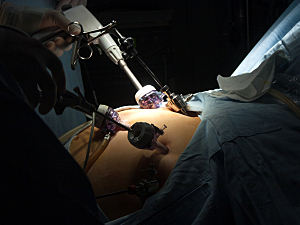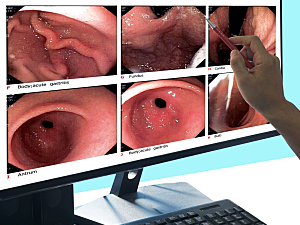Transoral Outlet Reduction Plus Pharmacotherapy Superior to Either Alone for Treating Weight Regain After RYGB

Brigham and Women’s Hospital researchers, and colleagues investigated the effect of combining pharmacotherapy with transoral outlet reduction. They demonstrate the combination is superior to either therapy alone and provides similar efficacy to surgical revision for weight gain after Roux-en-Y gastric bypass.
Read More...







